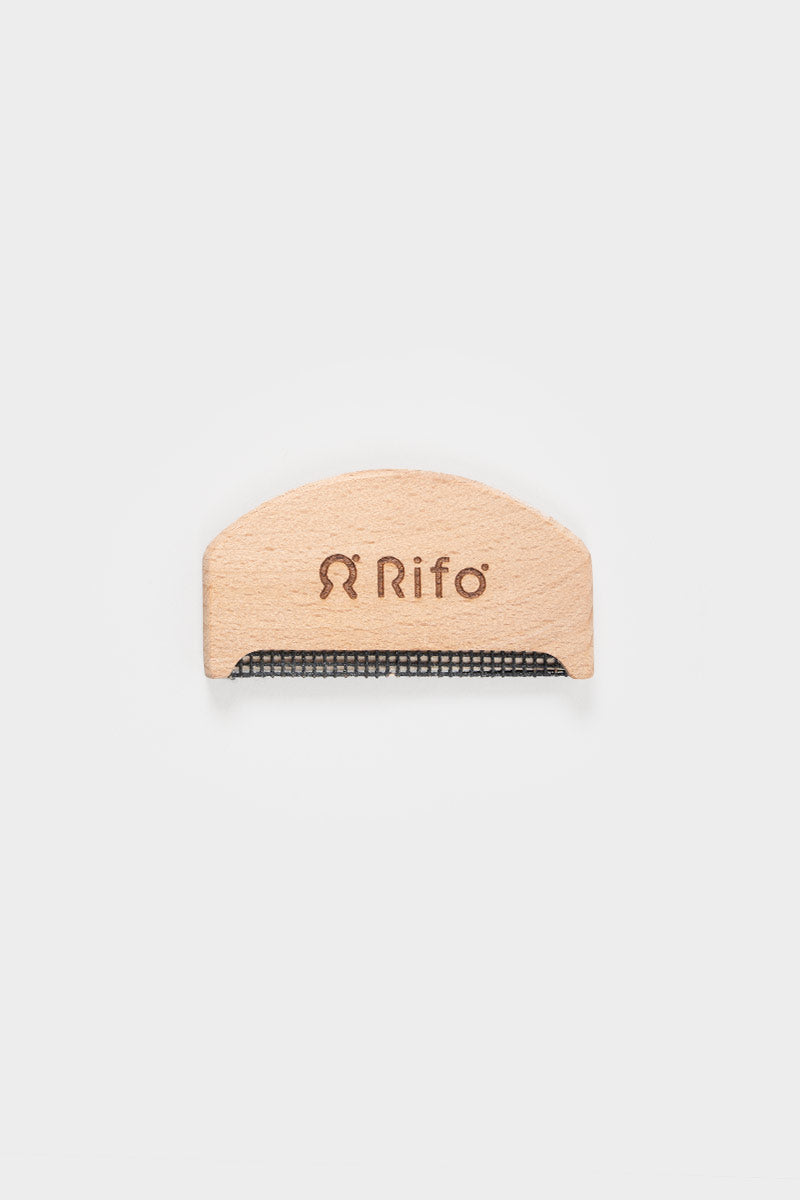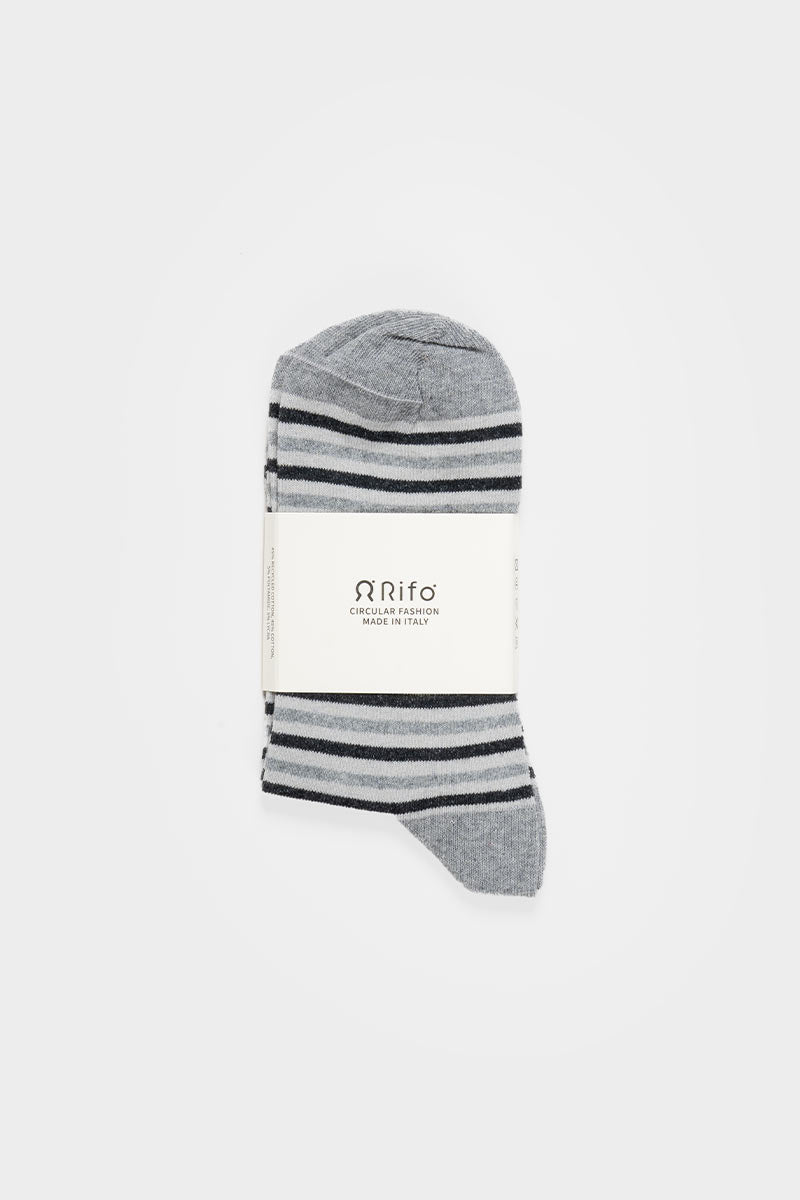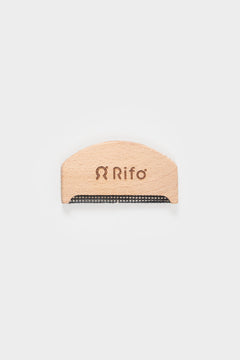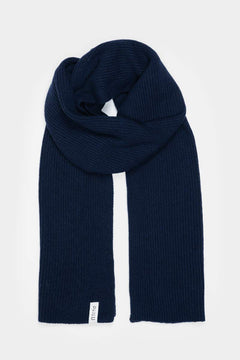Since its inception, Rifò has chosen as one of its foundational pillars to produce everything locally. This is possible through collaboration with a network of local artisans located within a few kilometers of our office in Prato.
Quality, Sustainability, Responsibility, is our motto. It is in the choice of durable and natural materials, carefully hand-crafted, that the meaning of Quality resides for us.
However, working every day with textile companies, primarily artisanal ones, exposes us to a struggling sector that faces uncertainty about the future and trouble finding new workforce to continue the Made in Italy tradition.
In this blog article, we went in search of some data to investigate a dear topic to us, which raises alarm bells: Is Italian textile production gradually disappearing?
We started from the place we know best, the textile district of Prato, which is a case study with its 7,000 companies and over 20,000 employees. Indeed, about 9% of artisanal companies that produce textiles and semi-finished products in Italy are located here.
Looking at the data from local industry associations and listening to the direct testimonials of local artisans, the situation seems far from being reassuring. At this rate, in the next 10 years, Made in Italy companies that currently preserve the knowledge and skills that have always characterized the quality made in Italy, may not be able to pass on the traditions that have always been their strength.
Fewer and Fewer Italian-Owned Companies
Looking at the data from the Chamber of Commerce of Prato and Pistoia, two seemingly contrasting elements emerge.
Over a span of 9 years, from 2013 to 2022, the companies of fashion sector in Prato remained stable in terms of numbers.
What has significantly decreased, is the number of Italian-owned businesses. From 2013 to 2022, this number decreased by 30%, going from 3,329 to 2,354 units. A decrease that reaches 36% when considering only artisanal businesses.

This means that many Italian businesses – small and medium-sized enterprises –are closing and no new ones are opening. Why is this happening?
Lack of Generational Change
The sad truth is that businesses do not always close due to losses. Often, even if they are financially healthy, the profit margins are still too low, and the owners prefer to close or liquidate the company rather than pass it on to their children.
However, it's not just the number of companies that can't survive that gives us an idea of the progressive disappearance of Made in Italy production. Another element indicates endangered trades.
That’s the difficulty in finding skilled workers and artisans who can help the industry move into the future.
As a matter of fact, there is demand for this sector, these are interesting profiles for companies. In 2022, almost 64% of textile sector companies in Prato reported looking for workers. If supply and demand had met, this would have created around 6,410 jobs. However, it's not that simple; in fact, the hiring difficulty index (the ratio of the number of hires that companies find difficult to fill to the total number of hires planned) is over 97%, according to CNA Toscana Centro (Italian Confederation of Craft Trades and Small- and Medium-Sized Enterprises).

Listening to the opinions of many local artisans, the situation is clear: the elderly are retiring, and it's difficult to find young people willing to continue these trades. An article in the local newspaper Il Tirreno confirms this fact, reporting data from Confindustria Toscana Nord (General Confederation of Italian Industry) and stating that 40% of the workforce in the textile industry in Prato is over 50 years old.
Endangered Professions
There are typical professions of Italian textile craftsmanship that are only carried out by retirees.
This is the case of the Rammagliatrice (linking machine operator), for example, a typically female profession that is an excellent case study to describe how a certain type of craftsmanship, done well and with care, risks disappearing in a few years.


Artisan Professions Have Lost Appeal for the Younger Generation
During the discussions we had with the artisans we collaborate with, it's reported that, on one hand, school paths are not specialized enough, and the educational offerings do not meet the needs of businesses. On the other hand, it seems that the younger generation lacks the desire to pursue these professional paths.
Speaking with artisans, we heard this testimonial: young people who come out of vocational schools lack specific skills, and often they are not prepared to undertake training programs that may make them pay their dues for a long period of time.
Because there is no real attraction to manual labor among the younger generations, the likelihood of a young person who has recently graduated from high school departing right away after beginning an apprenticeship appears to be very significant.
Artisans, on the other hand, require years of commitment and passion before becoming experts and truly competent in their field. These are long journeys that, however, yield a lot. The satisfaction of creating something with one's own hands and one's own mind, often helping the designer bring their idea to life, is an activity capable of providing immense satisfaction to those who practice it.
And the pay is no lower than that of a recent graduate. AlmaLaurea (an Italian public Interuniversity Consortium) reports that the average pay for a recent graduate is around €1,600 per month, more or less the same as that of a newcomer to the textile industry, according to this article. With years and seniority, it can go up to more than €3,000.
Perhaps these professions deserve greater consideration from the younger generation?
Supporting Generational Change for Made in Italy Textile Production
Supporting generational change, valuing beautiful but often discredited professions, is one of our most significant commitments today and for Rifò's future.
We don't want to be just a brand that sells clothing; we want to have an impact and bring about change, no matter how small.
We started with Nei Nostri Panni, the social impact project we built together with various partners and local institutions. Thanks to the genuine interest of companies in this initiative, at the moment we funded the employment of 12 migrants into the textile recycling sector in Prato, who are about to become new cenciaioli and spinners.

An equal number is in the selection phase for the new phase of the project, which aims to create generational change and promote the integration of people in difficulty into society.
And we're not stopping there; we're thinking of a knitting school, perhaps aimed at female figures who want to reintegrate into the workforce. These are dreams for now, but we will be able to make them a reality with the support of people who want to help through the purchase of our ethical and recycled garments.
Join the #Rifolution
















